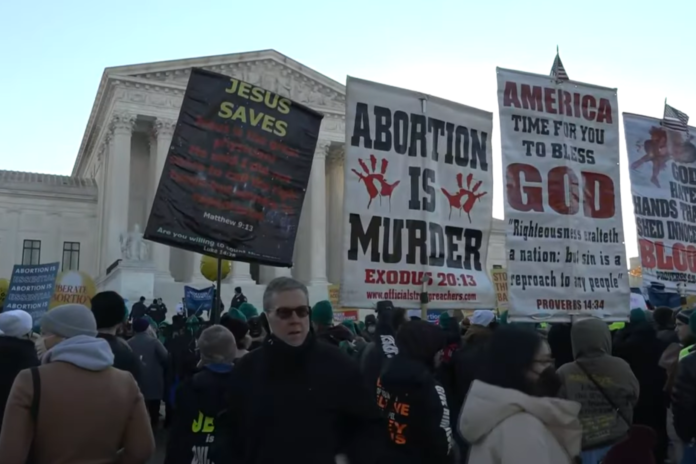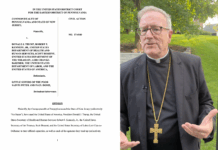
The Supreme Court began hearing oral arguments in the case of Dobbs v. Jackson Women’s Health Organization on Wednesday.
Billed as a referendum on Roe v. Wade, the case will address the constitutionality of a Mississippi law that bans abortion after 15 weeks of pregnancy, except in cases of severe fetal abnormality or endangerment to the mother’s life. There are no exceptions for rape and incest.
But pro-life Minnesotans should not expect any change to state law in the event that SCOTUS upholds the Mississippi law and, by extension, pre-viability abortion bans in other states.
“If the Court does fully overturn Roe v. Wade, states will again be able to determine their own abortion policies. In Minnesota, however, a 1995 Minnesota Supreme Court ruling, Doe v. Gomez, claimed that the state Constitution includes a right to abortion,” said Scott Fischbach, executive director of Minnesota Citizens Concerned Life, in a Tuesday statement.
“As long as this mistaken ruling remains in place, it will require abortion-on-demand in Minnesota even if the U.S. Supreme Court no longer imposes it at the national level,” he added.
Nevertheless, pro-life activists in states with legal abortion may feel even more emboldened to challenge their respective laws if the Supreme Court sides with the state of Mississippi.
“Regardless of how the Court rules, we will continue working to defend unborn children and empower women in Minnesota. No member of the human family should be excluded from the equal protection of the law, and no woman should ever feel like abortion is the only option,” Fischbach said.
“All human beings, including unborn children and their mothers, have human rights and deserve protection and compassion under the law.”
In Minnesota, pro-abortion activists have gone so far as to call on the state to defund programs that provide medical care, housing assistance, education, nutrition assistance, and adoption services to impoverished mothers who choose not to abort.
According to Gender Justice, a left-wing advocacy group in Minnesota, crisis pregnancy centers masquerade themselves as legitimate medical facilities, when they are really “anti-abortion organizations” that lack “medical legitimacy.”
“CPCs use deceptive and misleading practices to exploit economic insecurity and gaps in access to health care to advance their anti-abortion, anti-contraception agenda,” the group claimed in a recent report.










